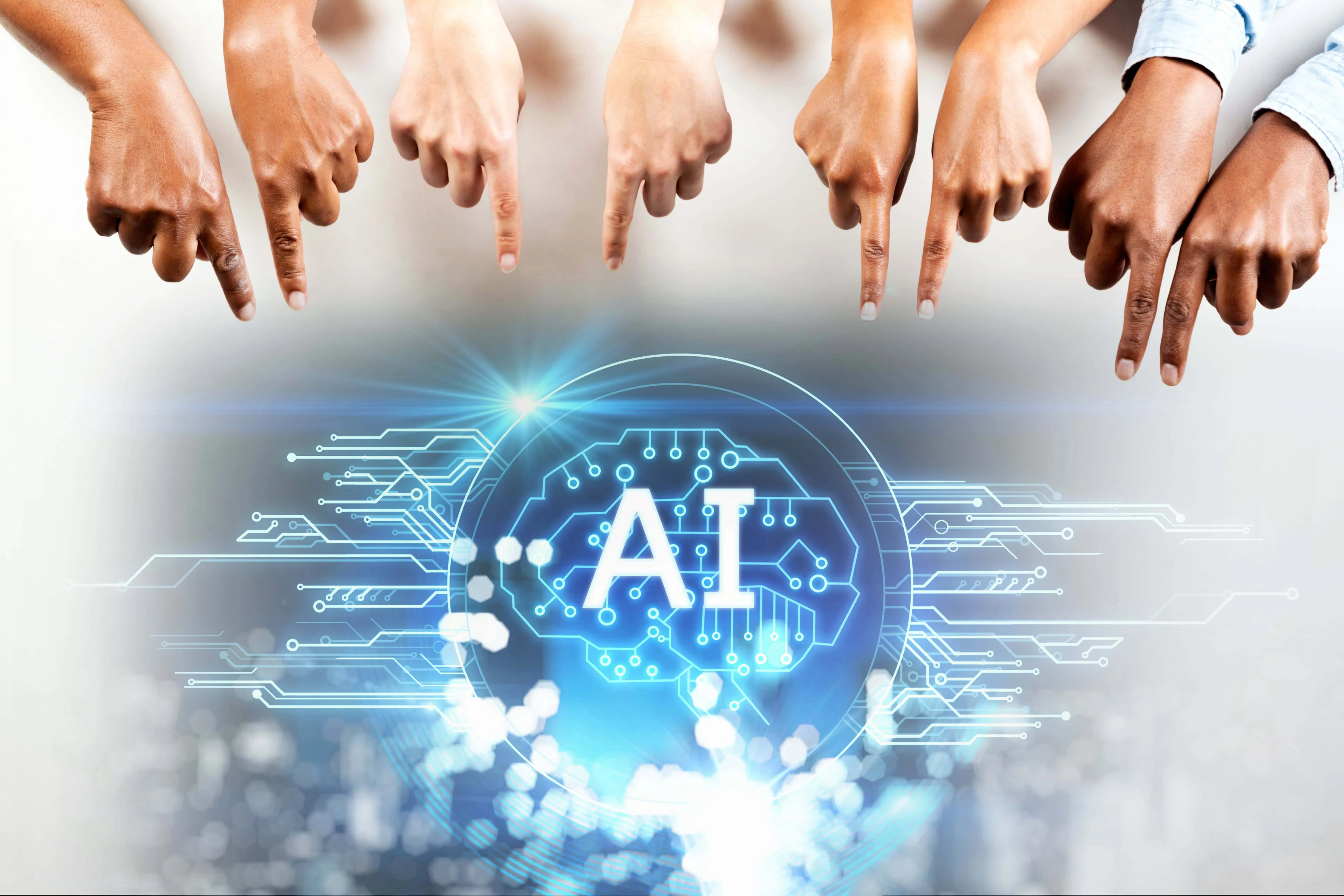Welcome to the forefront of workplace innovation—AI in the workplace. As technology evolves, artificial intelligence (AI) has increasingly become a crucial part of various business operations, offering unprecedented opportunities for efficiency and growth. This guide provides entry-level job seekers with a comprehensive understanding of how AI reshapes the work environment. You will discover the benefits, challenges, and essential considerations of integrating AI into daily work processes.
Whether you’re just starting your career or seeking to enhance your understanding of the current employment landscape, this guide will equip you with the knowledge to navigate the exciting realm of AI in the workplace. Learn how AI can optimize workflows, enhance decision-making, and foster a more inclusive and diverse corporate culture.
Embrace the journey of understanding AI’s role in modern employment and how it can potentially elevate your career path and workplace contributions. Let’s delve into the transformative world of AI and explore how it shapes the future of work.
Understanding AI in the Workplace
AI, or artificial intelligence, has become a transformative force across various industries. Yet, what does AI in the workplace entail? Simply put, it uses machine-driven intelligence to enhance productivity, efficiency, and innovation. AI systems can perform tasks ranging from basic data analysis to more complex roles such as decision-making and predictive forecasting.
Key Components of AI in the Workplace
- Data Analysis: AI tools process vast amounts of data to uncover trends and insights that are beyond human capacity.
- Automation: Routine tasks are automated by AI, allowing employees to focus on more strategic activities. For instance, AI can handle scheduling, inventory management, or email sorting.
- Customer Interaction: AI-powered chatbots and virtual assistants can manage customer queries effectively, offering both speed and scale.
The integration of AI not only drives workplace efficiency but also contributes to a more dynamic and responsive business environment. Additionally, AI technologies play a crucial role in areas such as talent acquisition and training, which are covered in detail in related discussions on our platform.
Real-World Examples and Case Studies
Many companies are already seeing significant benefits from AI applications. For example, financial services leverage AI for fraud detection, and retail companies use AI for personalized customer experiences. Education sectors are not far behind, with institutions like Stanford exploring how AI can transform teaching and learning processes. You can learn more about such advancements on Stanford’s official site.
Moreover, governmental organizations have recognized the importance of AI in enhancing public services. The National Institute of Standards and Technology provides resources and frameworks to help understand and implement AI effectively within various sectors.
Understanding AI’s role is foundational to appreciating its potential and addressing its challenges, paving the way for innovative workplace solutions.
Benefits of AI in the Workplace
Introducing AI in the workplace brings numerous advantages that can fundamentally change how organizations operate. By enhancing efficiency and enabling innovation, AI helps create a more productive work environment. Here are some key benefits:
Increased Efficiency
AI dramatically improves the efficiency of various business processes. For example, automating routine tasks like data entry allows employees to dedicate more time to strategic work that adds greater value. This shift boosts productivity and increases job satisfaction among team members.
Enhanced Decision Making
With AI’s ability to analyze large datasets quickly and with high accuracy, decision-making becomes more informed. AI systems can identify patterns and insights that might not be apparent to human analysts, leading to smarter, data-driven decisions.
Improved Customer Experiences
AI also plays a crucial role in personalizing interactions with customers. Applications such as AI-driven recommendation systems improve user experience and satisfaction, which in turn can increase loyalty and sales. For further reading on enhancing customer engagement, check out our AI and customer engagement discussion.
Moreover, AI in the workplace can help bridge the skills gap in certain industries, facilitating continuous learning and adaptation among employees. This aspect is particularly important in fast-evolving sectors like technology and healthcare. To explore more about AI’s impact on professional development, visit the Massachusetts Institute of Technology (MIT) website.
The strategic adoption and management of AI can certainly transform an organization, promoting efficiency and innovation and a deeper understanding of employees and customers. Furthermore, AI’s scalability means these benefits can grow and evolve within the organization. This creates a robust environment where both the company and its employees thrive.
Challenges and Considerations
While AI in the workplace offers significant advantages, it also poses challenges that require careful planning and ethical considerations. Here are some key issues to address:
Privacy Concerns
AI systems often need access to large datasets, including sensitive employee information. Ensuring data privacy is essential to maintaining trust and complying with legal standards.
Job Displacement
One major concern is the potential for AI to automate jobs previously done by humans. Companies need strategies to manage this transition and support affected employees. Training for new roles is a critical component of this strategy.
Over-reliance on Technology
Dependence on AI can lead to reduced human oversight, potentially missing out on unique insights only people can provide. Balancing AI use with human intuition is necessary.
Implementation Costs
Setting up AI systems involves significant financial investment in technology and training. While beneficial, small and medium-sized enterprises might find the initial costs daunting.
Addressing these challenges proactively will help harness AI’s potential while mitigating risks. Moreover, this balanced approach ensures that AI in the workplace benefits everyone involved.
AI and Diversity in Hiring
AI in the workplace can greatly enhance diversity and inclusion efforts, especially in the hiring process. By leveraging AI, companies can access a broader range of talent and reduce unconscious bias.
Fair Talent Acquisition
AI-driven tools can help standardize candidate screening, reducing human biases that might favor certain demographics. AI can also analyze job descriptions to ensure they are neutral and appeal to a diverse applicant pool.
Enhancing Workforce Diversity
Companies use AI to track diversity metrics and identify areas for improvement. This data-driven approach helps set targeted diversity goals and measure progress.
Incorporating AI into job search websites and diversity initiatives broadens the scope of talent acquisition and fosters an inclusive culture.
Addressing AI Bias
While AI can reduce human bias, it’s not free from its own biases. Training AI systems with diverse datasets and continuous monitoring for bias is crucial. Ensuring AI fairness enhances credibility and effectiveness in diversity initiatives.
Overall, AI offers powerful tools for improving diversity in hiring, leading to a more inclusive and equitable workplace. As these technologies evolve, they must be managed wisely to fully realize their potential in creating a diverse workforce.
Training for AI Integration
Proper training is crucial for maximizing AI’s benefits in the workplace. Equipping the workforce with the necessary skills ensures they can effectively use AI tools.
Develop Skills Related to AI
Employees should understand how AI works and how to interact with AI systems. Training programs often include:
- Data literacy to interpret AI outputs
- Technical training specific to the AI tools used within the company
- Problem-solving skills in an AI-driven environment
These skills help employees feel more comfortable and confident when using AI technologies.
Continuous Learning and Adaptation
AI evolves quickly. Ongoing education ensures that workers keep up with new technologies and methods. This could mean regular training sessions or updates over time.
Partnerships with educational institutions such as Harvard University often provide external courses and certifications in AI and machine learning, which benefit professional development.
Ultimately, structured training programs ensure that AI integration into the workplace is smooth and that all employees can harness its full potential. They bridge the gap between human and artificial intelligence, boosting both productivity and work quality.
Future Trends of AI in the Workplace
The landscape of AI in the workplace is rapidly evolving, promising exciting advancements for the future. Awareness of these trends can help organizations and employees prepare and adapt efficiently.
Increasing Automation
As AI technology improves, we’ll see an increase in automation of more complex tasks. AI’s capability to handle sophisticated duties will escalate, enhancing productivity and allowing human employees to focus on creative and strategic roles.
Augmented Decision-Making
AI will play a larger role in decision-making. By integrating AI with big data, businesses will achieve more accurate and faster decisions, streamlining operations and improving outcomes.
Enhanced Personalization
AI will tailor work experiences to individual employees’ strengths and preferences in the future, likely increasing job satisfaction and efficiency.
Moreover, AI technologies are expected to become more intuitive and user-friendly, reducing the learning curve for new users and increasing accessibility. These advancements predict a workplace where AI and humans coexist more seamlessly,
Understanding these future trends can prepare both businesses and workers for a smoother transition and optimal utilization of AI in the workplace. This proactive approach contributes to a more innovative and competitive organization.
Legal and Ethical Implications
As AI expands in the workplace, understanding its legal and ethical implications is crucial. This ensures that AI implementations are effective and respect both legality and ethical standards.
Regulatory Compliance
When using AI in operations, companies must comply with data protection laws like GDPR and HIPAA. This compliance protects sensitive information and upholds privacy rights.
Ethical Usage of AI
AI must be used responsibly to prevent discrimination and ensure fairness in decision-making processes. Tools must be designed to eliminate biases, particularly in hiring and evaluations.
Employee Rights
There is a growing discourse on how AI impacts worker rights and job security. Organizations must transparently communicate AI’s role and its implications for the workforce.
Resources like the U.S. Department of Labor offer valuable insights into how AI influences labor laws.
Adhering to these standards is not merely about legal compliance but also about fostering an ethical culture that leverages AI in ways that benefit everyone in the organization without causing harm. This balanced approach will be crucial as we move further into a future dominated by AI in the workplace.
FAQs
How does AI in the workplace improve productivity?
AI optimizes workflows by automating repetitive tasks, thus allowing employees to focus on more strategic and impactful work.
Can AI help in making workplaces more diverse?
Yes, AI can analyze recruitment data to identify bias and promote more inclusive hiring practices.
What training is needed for effective AI integration?
Employees should be trained on how to operate AI tools and interpret their outputs. Regular updating of skills as AI evolves is also vital.
What ethical considerations should companies address with AI in the workplace?
Companies need to design AI systems that are transparent, accountable, and free from biases to ensure ethical use in decision-making.
How should businesses prepare for future AI advancements?
Businesses should stay informed about AI trends, adapt their strategies accordingly, and continue investing in employee training.
What are common misconceptions about AI in the workplace?
Common misconceptions include the notion that AI will replace all jobs and that AI operates independently without human oversight.
These FAQs aim to clarify common curiosities and concerns about AI in the workplace, helping employees and employers better navigate this advancing technological field.
Conclusion
AI in the workplace is not just a technological upgrade but a dynamic evolution that reshapes how businesses operate and grow. AI’s benefits are vast, from enhancing productivity and decision-making to supporting diversity and continuous learning. However, it also necessitates thoughtful implementation, addressing ethical, legal, and practical challenges to ensure it benefits all stakeholders.
As AI continues to evolve, staying informed and adaptable is crucial. Engaging with ongoing learning opportunities and discussions about AI can help businesses and employees alike harness its full potential. Integrating AI responsibly ensures a future where technology enhances work-life comprehensively.
Join Diversity Employment
Ready to explore AI’s potential transformation of your workplace further? Join Diversity Employment today to access resources, employment opportunities, and expert insights into diversity and technology in the workforce. With knowledge and innovation at our side, we can embrace the future of work.




